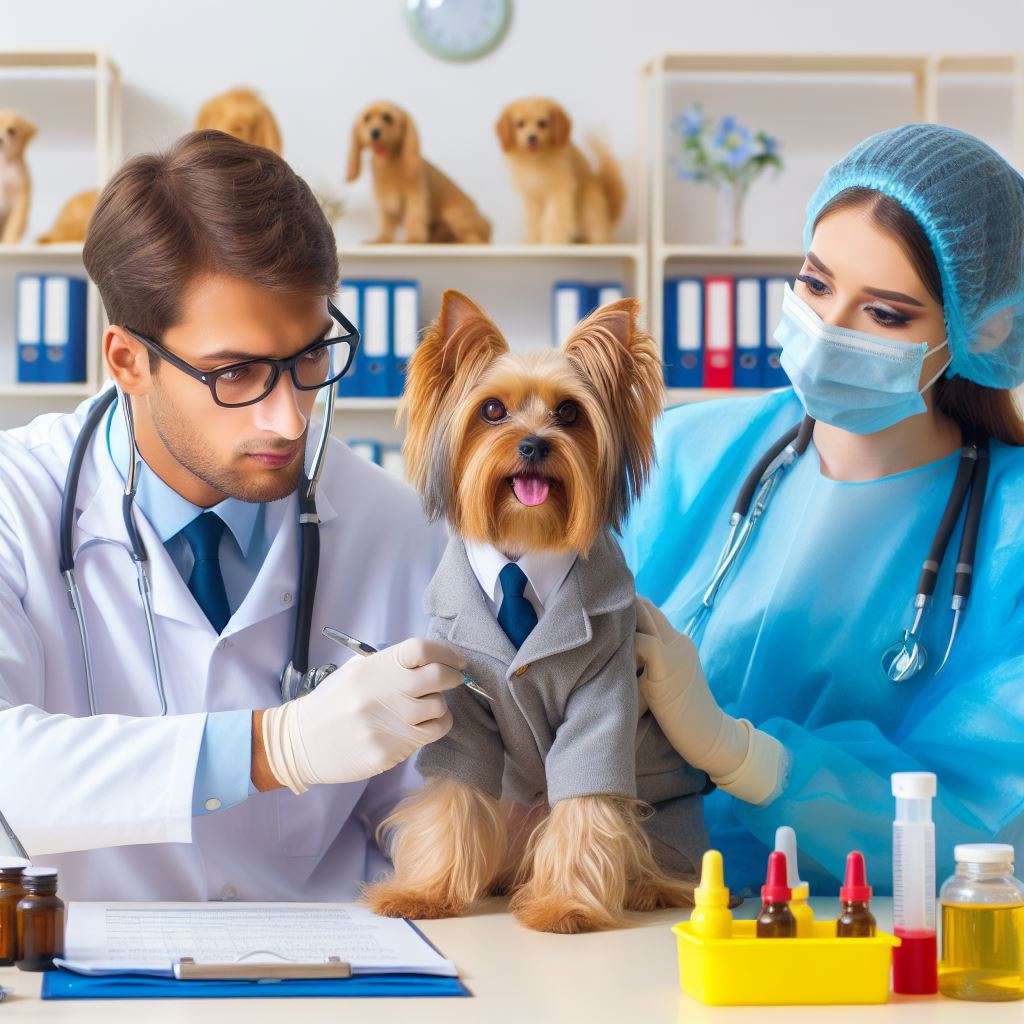We all love our furry companions. They lick away our tears, greet us with enthusiastic tail wags, and become our loyal shadows. But unlike our human friends who can simply say “I don’t feel good,” our dogs rely on us to pick up on subtle signs that something might be wrong.
Forget the myth that a wet nose always means a healthy dog! While a dry nose can sometimes indicate dehydration, a wet nose can also be a normal part of your pup’s physiology. The key to deciphering your dog’s health lies in understanding their regular behavior and spotting any changes.

Signs That Your Dog Might Be Sick
Dogs, like humans, can fall ill from time to time. However, since they cannot communicate their discomfort verbally, it’s important for pet owners to be vigilant and observe any changes in their behavior or physical condition. Here are some signs that may indicate your dog is sick:
1. Changes in Eating Habits: Keep an eye on your dog’s appetite. If they suddenly lose interest in food or water, it could be a sign of illness. Conversely, excessive hunger or thirst can also be indicators of an underlying health issue.
2. Lethargy: If your dog seems unusually tired or lacks energy, it might be a cause for concern. Dogs are typically active animals, so a significant decrease in their activity level could signify an underlying problem.
3. Vomiting or Diarrhea: Occasional vomiting or diarrhea may not be uncommon for dogs, especially if they’ve eaten something unusual. However, persistent vomiting or diarrhea could be a sign of a more serious issue such as an infection or gastrointestinal problem.
4. Changes in Bathroom Habits: Pay attention to any changes in your dog’s urination or defecation patterns. Difficulty urinating, blood in urine or feces, or straining during bowel movements could indicate a health problem.
5. Coughing or Sneezing: Just like humans, dogs can catch colds or develop respiratory infections. Persistent coughing, sneezing, or difficulty breathing may require veterinary attention.
6. Changes in Weight: Significant weight loss or gain without a change in diet or exercise routine could be indicative of an underlying health issue, such as thyroid problems or digestive disorders.
7. Changes in Coat or Skin: A dog’s coat and skin can provide valuable clues about their overall health. Look out for signs of hair loss, dry or flaky skin, redness, swelling, or the presence of lumps or bumps.
8. Behavioral Changes: Any sudden or unexplained changes in your dog’s behavior should be taken seriously. This could include increased aggression, anxiety, restlessness, or unusual vocalizations.
9. Limping or Difficulty Moving: If your dog is limping, favoring one leg, or showing signs of stiffness or discomfort when moving, they may be experiencing pain or injury.
10. Changes in Eyes, Ears, or Nose: Discharge, redness, swelling, or any other abnormalities in your dog’s eyes, ears, or nose could indicate an infection or other health issue.
When to Consult a Veterinarian: If you notice any of the above signs or if you simply feel that something is not right with your dog, it’s best to consult a veterinarian. Early detection and treatment of health problems can significantly improve your dog’s prognosis and quality of life.
Remember, as a responsible pet owner, it’s essential to stay attentive to your dog’s health and well-being. Regular veterinary check-ups, a balanced diet, adequate exercise, and lots of love and attention are all crucial elements in ensuring a happy and healthy life for your canine companion.

When to Seek Professional Help: Knowing When a Trip to the Vet is Essential
Knowing your dog and understanding their typical behavior is key to recognizing when something might be wrong. However, there are some situations where seeking professional help from your veterinarian shouldn’t be delayed.
Don’t Wait: Emergencies Requiring Immediate Veterinary Attention
- Persistent vomiting or diarrhea: While an occasional upset tummy might not be a cause for concern, if your dog is vomiting or experiencing diarrhea for more than 24 hours, dehydration can quickly become a serious issue.
- Difficulty breathing: Rapid or labored breathing is a red flag and could indicate anything from a respiratory infection to heart problems.
- Severe pain or discomfort: Is your dog yelping in pain when touched or refusing to put weight on a leg? These signs could indicate a serious injury or illness.
- Seizures or tremors: Seizures are a neurological symptom that requires immediate veterinary attention.
- Excessive bleeding: Any significant amount of bleeding, whether internal or external, necessitates a trip to the vet.
- Loss of consciousness: If your dog loses consciousness, even for a brief moment, seek emergency veterinary care immediately.
Trust Your Gut: When to Err on the Side of Caution
Even if your dog isn’t experiencing a life-threatening emergency, it’s always better to be safe than sorry. If you notice a combination of concerning signs, like lethargy, loss of appetite, or unusual discharge, consult with your veterinarian. Early detection and treatment can often lead to a faster recovery and better overall health for your furry friend.
Keeping Your Pup Happy and Healthy: Preventative Care is Key**
Just like humans, dogs benefit from regular checkups and preventative care. Scheduling yearly vet visits allows your veterinarian to monitor your dog’s health, detect potential problems early on, and recommend necessary vaccinations. A healthy diet, regular exercise, and proper dental hygiene are also crucial for keeping your dog happy and healthy for years to come.
By understanding the signs of illness and taking proactive steps to prevent problems, you can ensure your furry companion enjoys a long and healthy life by your side.
So, there you have it! With a little knowledge and attentiveness, you can become a doggy detective and ensure your pup gets the care they need to stay happy and healthy. Remember, a wagging tail and a happy bark are the best signs your dog is feeling their best!

